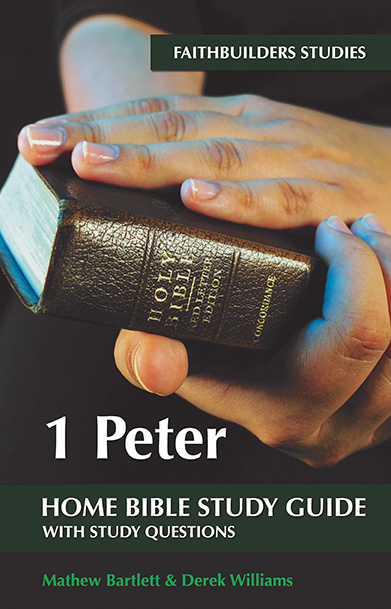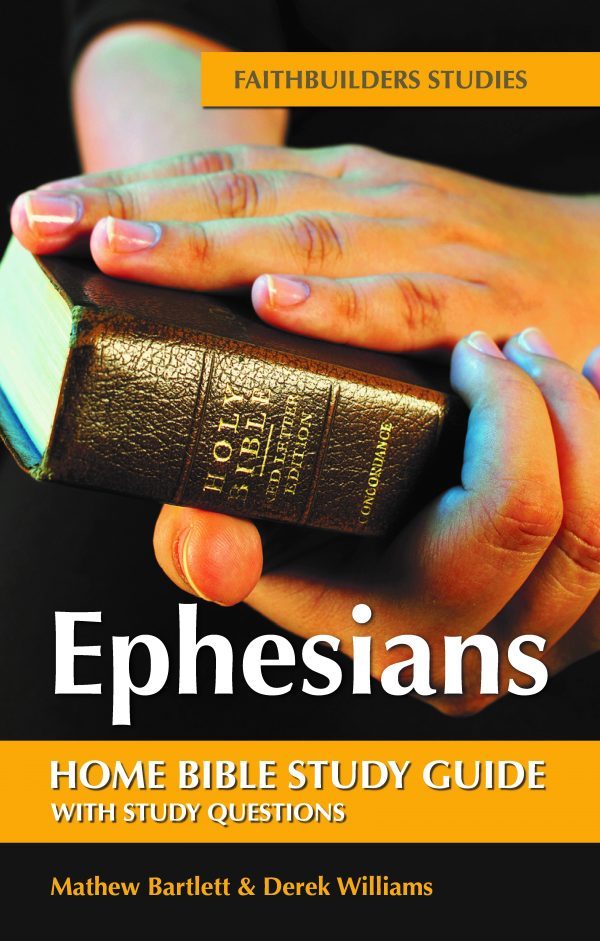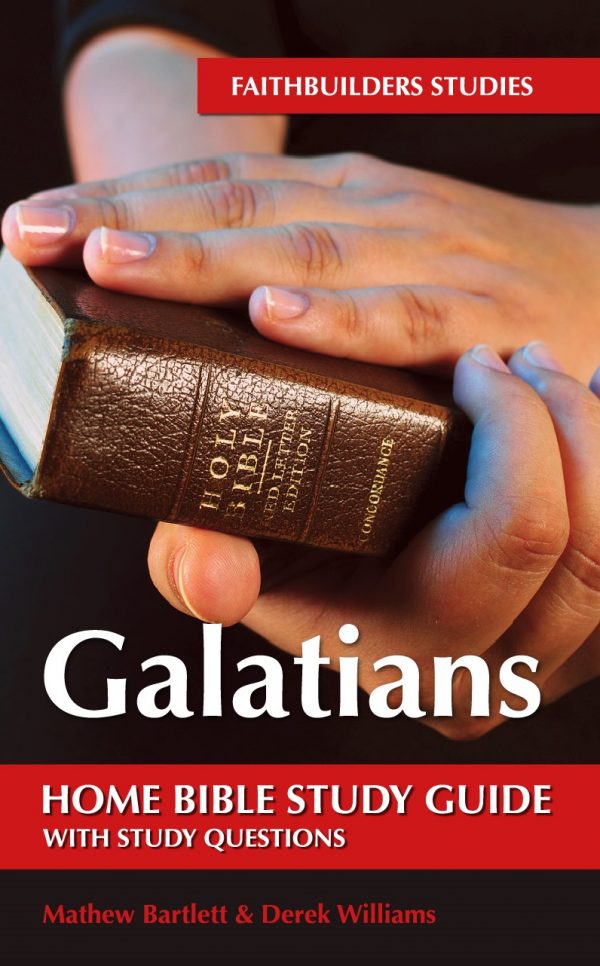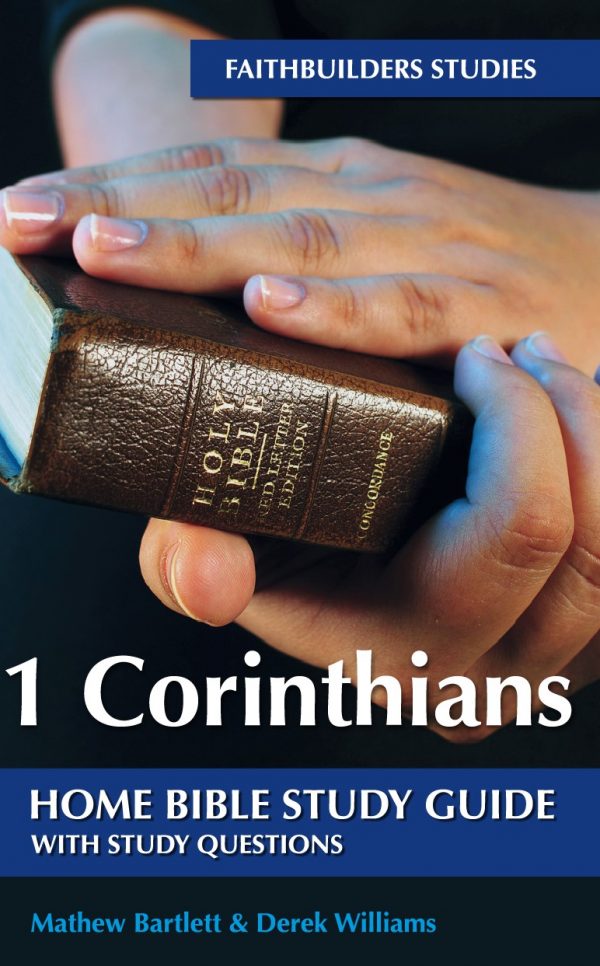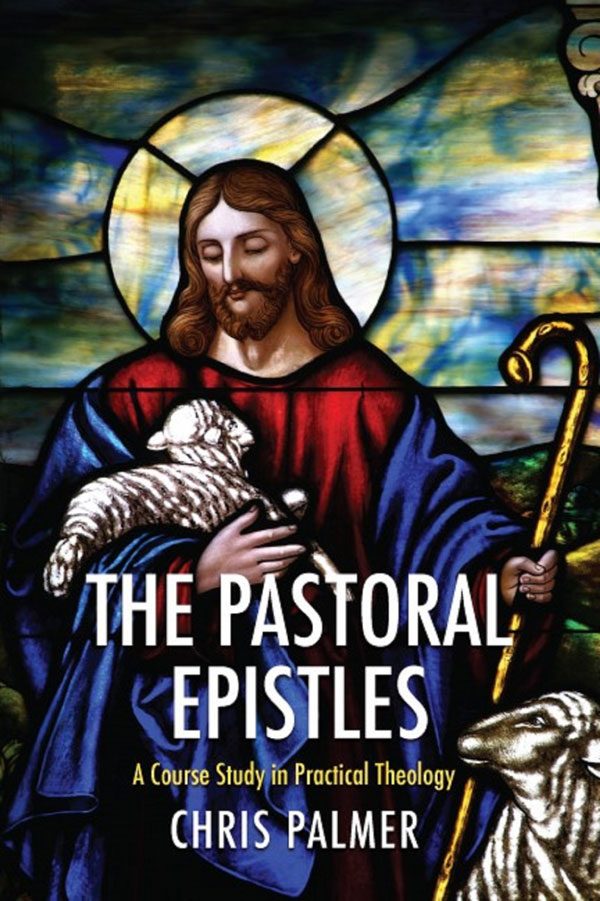Description
The First Epistle of Peter Bible study guide gives the full Bible text with verse by verse commentary, an examination of major themes, discussion questions with sample answers, and a “going deeper” section for those harder-to-understand passages. Faithbuilders Bible study guides will lead you to a deeper appreciation of God’s Word and its relevance for your life today! Challenging and relevant, whilst avoiding academic language, hundreds of pastors, home group leaders and Christians from a wide range of church backgrounds have already benefitted from using Faithbuilders studies.
EXTRACT: Going Deeper
Are Christians going to heaven? For Peter, the inheritance which God has made available for the believer is reserved in heaven (cf. Col 1:5). The earliest Christians understood heaven to be the place where God dwells (e.g. Mark 1:11; 6:41; 7:34; 8:11; 11:25 – Mark is believed to be the earliest gospel). Jesus had taught them not to lay up treasure on earth, but in heaven (Mark 10:21). Heaven is where Jesus is now (Mark 16:19; cf. Acts 7:55; Rom 10:6), the place from which he will soon return (Mark 14:62; 1 Thess 1:10). Believers are citizens of heaven (Phil 3:20) and the dead in Christ are currently in heaven (the implication of Eph 3:15, and the more explicit image of Rev 7:9–12).
In Phil 3:20–21, Paul tells us that the Lord Jesus Christ, in his resurrected body, is currently in heaven, and from there he will return and transform our bodies to be like his. The clear implication is that these bodies will, like his, be able to live in heaven. Furthermore, Paul insists in 1 Cor 15 that the flesh and blood bodies we currently inhabit cannot inherit “immortality” and “incorruption.” These bodies must be replaced with spiritual ones that we may “inherit the kingdom of God” (15:50). Our bodies now bear the image of the earthly man (Adam) but will then bear the image of the heavenly man (Christ) (15:47).
Even so, Christian hope in the resurrection and eternal life was not based on our becoming spirits who fly around in heaven. Our resurrection bodies will be “spiritual” (15:46) and “heavenly” (15:49) and yet they are still “bodies.” The resurrected Christ, as well as being able to live in heaven, remained on earth for a long period. He appeared to his apostles for 40 days (Acts 1:3) and ate and drank with them (Luke 24:39–42). And yet as the Gospel resurrection accounts show, Christ could appear and disappear at will (Luke 24:31). His body could be handled, and yet it could also seemingly pass through locked doors (John 20:19). Here was a resurrection which the early believers initially lacked precedent or vocabulary to explain. Even in John’s first epistle, thinking of our resurrected bodies, we read: “what we will be has not yet been revealed.” Yet John goes on to clarify “We know that whenever it is revealed we will be like him, because we will see him just as he is” (1 John 3:2).
The future of believers will certainly involve our spending time in “heaven,” the immediate presence of God where Jesus is now. But other scriptures also indicate it will also encompass our living in the new heaven and the new earth, where God will dwell among us forever (Rev 21:1–4). It is not a case of either-or. It is a case of our being, in our incorruptible and immortal resurrection bodies, able to dwell with God eternally, and to live wherever God may be.

